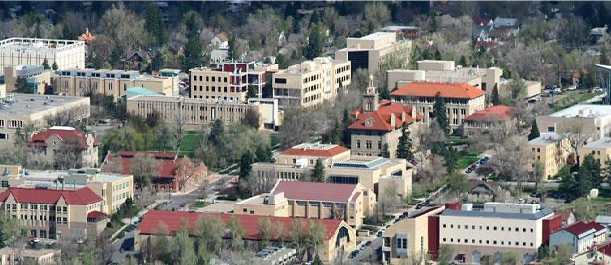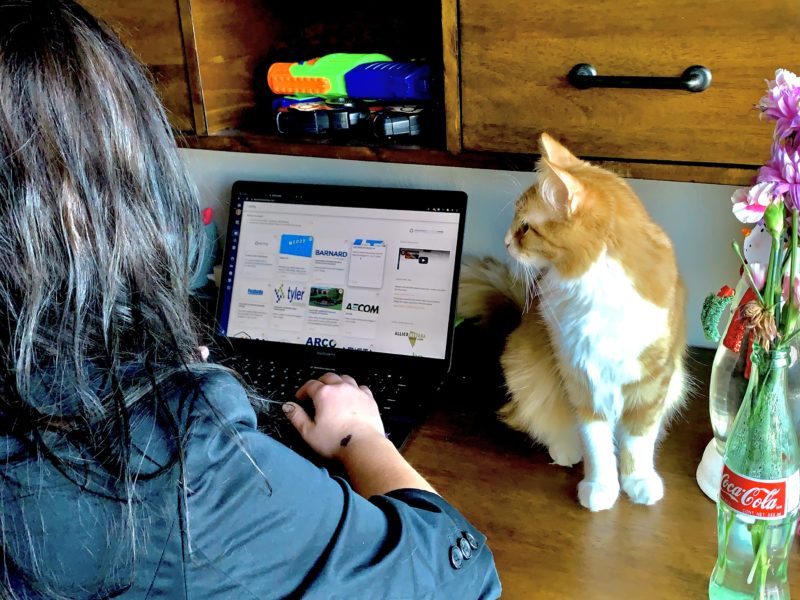Three weeks ago, the longest government shutdown in American history came to a temporary end with a Continuing Resolution (CR) being agreed upon to fund the government for three weeks. Of course, with this coming to a close, the question is now what will happen when that time is up? To get some insight into how the shutdown has impacted those working for the government, I interviewed a current student and a recent Mines graduate who work for two different government agencies. Both were personally affected by the shutdown and agreed to share with me their viewpoints on the latest government shutdown, as well as their predictions as to what is in store when the CR reaches its deadline.
David Herman, a Senior in Geophysical Engineering, currently works as a Pathway Science Intern at the United States Geological Survey (USGS) National Hazards Center. Here are some highlights from our interview:
How did the latest government shutdown affect your personal life?
“I was initially not going to be at work when the shutdown first happened since I was going home for break, so I wasn’t too worried. Though this changed to uncertainty as it continued through break. The shutdown realty started to affect me a couple of weeks into the school year when I didn’t have income that I was expecting to have at that point. Luckily, I had an emergency fund saved up that I was able to tap into for necessary payments. Mainly it just disrupted my routine by me not being able to go to work.”
Where do you place yourself on the political spectrum?
“Central. I tend to lean left on some issues and right on others.”
If you were to place blame for this past shutdown, where would it be?
“I put blame on the state of how politicians treat politics now, where they are willing to use hundreds of thousands of employees as bargaining chips, saying ‘well if you cared about them you would give us what we want’.”
How was the transition back to work after the shutdown?
“Coming back to work was a smooth transition, we received backpay for the number of hours we would’ve worked and got back to work again.”
Have you made any preparations for the upcoming shutdown and do you have any predictions on how it will go?
“I have been being a lot more frugal recently in preparation for the shutdown, so that I can have a pocket of money saved up so that I don’t have to worry as much about the shutdown. If nothing changes, I don’t have any faith that it will re-open anytime soon. I can’t really predict how long this next shutdown might be, as that will depend on the willingness of politicians to propose legislation.”
Jaydee Griffith, a December 2017 Mines graduate, is currently employed at National Telecommunications and Information Administration’s (NTIA) Institute for Communication Sciences (ICS) as an Electrical Engineer in the Telecommunications and Information
Technology Planning Division. Here are some highlights from our Interview:
How did the latest government shutdown affect your personal life?
“I was considered a non-essential employee, most of the people that work in our office were as well. During that time, it was tough because I had a lot of free time which was unnerving because, especially in recent years, it’s been hard to say how long a shutdown is going to last. They used to be easy to predict since they would usually just happen over a weekend or so,
except for the now second-longest one during the Clinton administration. But now it could be a day, or it could be 35, who knows? That’s the biggest impact, you don’t know when you get to go back to work. On top of that, until congress authorizes backpay, you don’t know if you’re getting paid for the time you missed.
Luckily, I was able to file for unemployment, which was able to help keep the lights on and food on the table, along with some money I had stashed away to help make ends meet before the government re-opened. But it got to the point where some of my co-workers were starting to look for jobs outside the government. Especially with us being Engineers and Computer Scientists, it’s not like it would be difficult for us to find a job.”
Where do you place yourself on the political spectrum?
“Central but leaning more on the conservative side.”
If you were to place blame for this past shutdown, where would it be?
“My biggest issue was that politicians on both sides couldn’t just come to an agreement. I’m more upset at the political divide and distinct lack of cooperation on both sides. And when the government is funded, even temporarily like now, it just leads to complacent politicians who just wait for the shutdown to act.”
Have you made any preparations for the upcoming shutdown and do you have any predictions on how it will go?
“As for the next shutdown, I was luckily able to move some projects around so that I can work through the next shutdown. As for how long it will last, assuming Trump does not declare a national emergency, my going guess is alternating 15-day shutdowns and CR periods until enough Republicans get fed up and decide to override a presidential veto.”
Do you have any closing remarks?
“A lot of people get put off from federal service because of things like shutdowns and a lack of glamorous pay, but a lot of times it feels like a mission you can believe in. You feel like you are contributing to the future of America and the time off deals are not bad. Despite what you see in the news, I still encourage people to consider employment in the federal government. There’s a lot of fun to be had alongside a lot of bureaucracy, but no matter what you do in engineering you’re going to be dealing with paperwork regardless.”
Disclaimer: The personal viewpoints of these employees do not reflect the viewpoints of their respective government agencies.



'Perspectives on the government shutdown' has no comments
Be the first to comment this post!